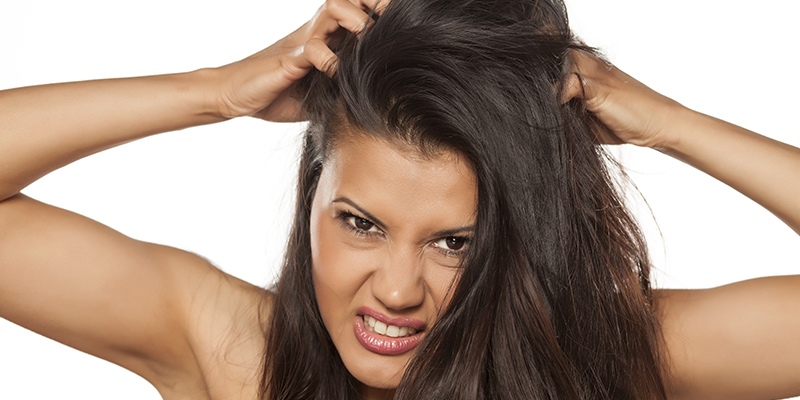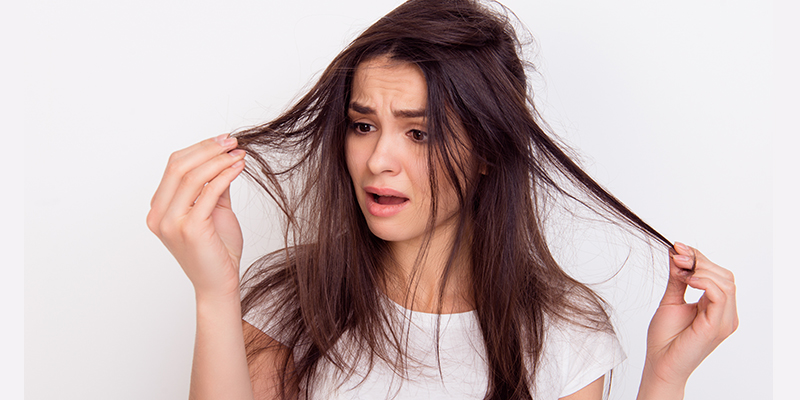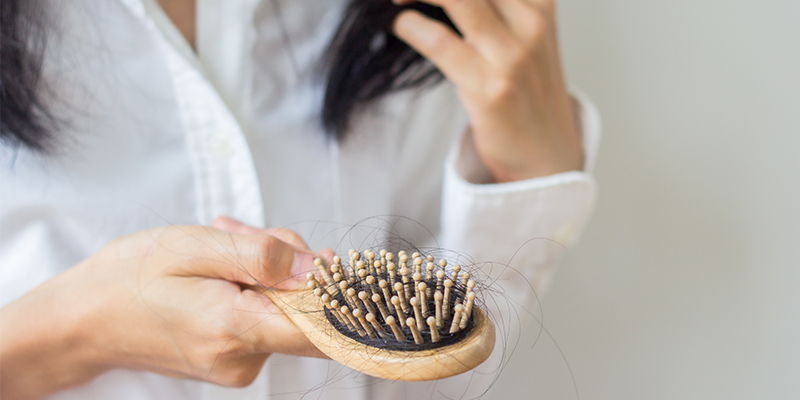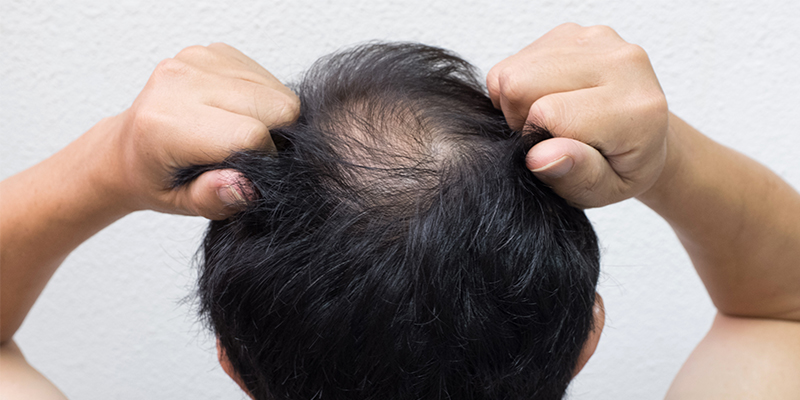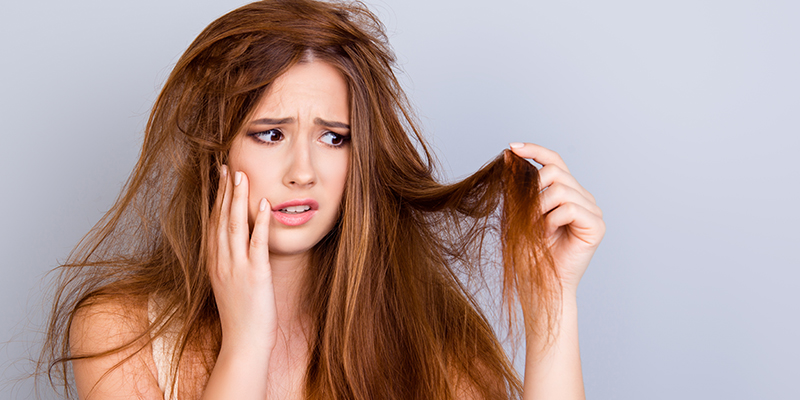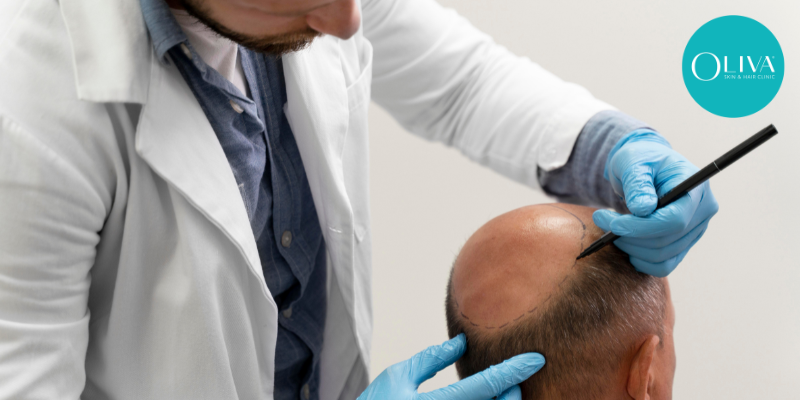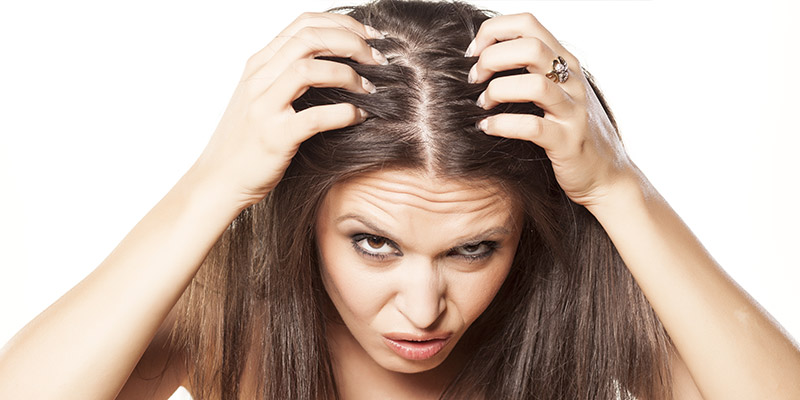Scalp Problems: Causes, Symptoms And Treatments
Scalp problems can occur without any warning, if you notice any bumps or dry flakes on your scalp, then you most likely have some form of scalp condition.
List Of Scalp Problems
Scalp problems can differ in many ways. Something as common as dandruff is a type of scalp problem. Let’s differentiate the different types of scalp problems based on how common and rare they are:
➔ Common Scalp Conditions
1. Dandruff – White flakes are common symptoms of dandruff. However, there are two types of dandruff; oily and dry. Oily dandruff is due to excessive production of sebum. This results in thick yellowish flakes and discharges from the scalp. Dry dandruff occurs when the scalp is excessively dry or when there is a yeast infection. The scalp gets sores, red and itchy
2. Lichen Planus – It is a chronic inflammatory disease that is believed to arise due to autoimmune conditions. It occurs as a rash which is not contagious
3. Psoriasis – An autoimmune condition, psoriasis occurs when the cells within the top most layer of your skin becomes overactive leading to a pink-red rash. They are highly inflamed, painful and irritable. It can affect any part of the body, but mostly occurs on the scalp and hairline
4. Folliculitis – This affects the hair follicles causing them to inflame and swell up. They appear as small bumps (similar to pimples and acne) and are filled with pus. Bacterium called staph, shaving and excessive sweating are all responsible for folliculitis
5. Alopecia – Losing hair in chunks due to genetics, hormonal abnormalities, medication and fragile hair is known as Alopecia. The Alopecia spots can randomly appear on the scalp in small or large patches. Some kinds of alopecia that affect scalp include –
- Male/ female pattern baldness is also a form of scalp condition occurs amongst men and women respectively. This scalp condition is caused due to genetics, excessive androgen production and hormonal abnormalities
- Scarring Alopecia causes inflammation of scalp along with hair loss. It is also known as cicatrical alopecia.
- Alopecia Areata is also another common condition where hair is lost in patches from the scalp. This is an autoimmune disorder where healthy follicles are attacked by the body’s immune system
- Traction Alopecia – When excess stress, pulling or force causes the hair to fall leaving bald patches on the scalp.
6. Seborrheic Dermatitis – A severe form of dandruff where the scalp becomes greasy, scaly and very itchy. It affects adults as well as babies (known as cradle cap in babies).
7. Head lice and Ringworm (Tinea capitis) – Invasion of fungi, small organisms and lice can result in itchiness, soreness and bald patches. The scalp swells and becomes very painful.
➔ Rare Scalp Conditions
1. Pityriasis Amiantacea – This causes scaling on the scalp that occurs in patches. People who are prone to seborrheic dermatitis, eczema, psoriasis are more likely to be affected by this scalp condition.
2. Lipedematous – A very rare scalp condition where the scalp becomes soft and spongy. It can cause severe pain, headache, thickening of scalp, and abnormal sensations. Lack of hair is another major symptom and if contracted then it can lead to hair fall.
Also Read: What Causes Itchy Scalp And Hair Loss?
Does All Scalp Problems Cause Hair Loss?
Unfortunately, most scalp problems cause hair loss and hair breakage. Since hair roots are attached to the scalp, any disturbance or infection of the scalp will lead to weakening of hair roots and thus result in hair fall.
Hair loss is inevitable as it is the most common symptom of scalp condition. Here are some scalp problems that result in hair loss, baldness and hair breakage –
1. Male pattern baldness – Men can suffer from Male Pattern Baldness at any age (even their early 20s). Not all patterns of this conditions are similar and it can vary from individual to individual
2. Dry scalp, dandruff, psoriasis – All these scalp conditions have one thing is common; they dehydrate the hair follicles and block oxygen supply to the hair roots, all leading to hair loss
3. Alopecia Areata – The most visible form of hair loss, alopecia occurs in patches where the hair completely falls outs and does not grow back. The bald spots remain smooth and hairless. This scalp problem must be treated at its earliest stage as any delay can result in permanent damage
4. Infection – Bacterial or yeast infection will attack the hair follicles and cause hair loss. There are many medical solutions to treat such scalp problems
5. Cradle Cap, seborrheic Dermatitis – It can create long term hair loss if left untreated. The best solution to control the oiliness and soothe the inflammation
6. Ringworm – Not a worm in exact measurements but more of a fungus, ringworms destroy hair follicle leaving circular marks and patterns. They can also cause hair breakage and baldness.
Also Read: What Are The Causes Of Hair Loss In Men And Women?
Causes of Scalp Conditions
Scalp conditions vary in every manner depending on the particular scalp problem you are facing. A particular scalp condition can have one cause or multiple. But there are common causes for all the scalp problems. Here are some common causes –
1. Psoriasis
2. Hormonal disorder
3. Auto-immune disorder
4. Male pattern baldness
5. Scleroderma
6. Bacterial or yeast infection
Symptoms of Scalp Conditions
All scalp conditions do not look or feel the same. However, there are few similar symptoms that occur with most scalp conditions –
1. Rashes
2. Itchiness
3. Tenderness
4. Pain
5. Scaly patches
6. Hair thinning
7. Hair loss
8. More hair breakage
Some of these symptoms may be related to a different disease and not necessarily related to conditions of the scalp.
What Kind of Doctor to Visit For Scalp Problems?
Facing scalp problems can be embarrassing for most, but fret not as they are quite common and can be treated effectively. Most scalp related diseases can be treated by a trichologist (hair specialist) or a dermatologist. There are a few doctors who specialise in both skin and hair and they are known as dermato-trichologist. Consult with a specialist and follow the prescribed treatment thoroughly to get desired results.
Treatment For Scalp Conditions
Every scalp problem will have a distinct treatment. Along with medical treatments, dietary changes and supplements will be added to accelerate the results and healing process.
Medications can treat unusual health conditions including hormonal and autoimmune disorders. If needed, surgical implants or hair transplants are a possibility in case the hair is lost for good. But, that is left for last resort as doctors aim at finding the true underlying cause of the scalp disorder. Some treatments include –
Medical treatments
• Antibiotics – They work well against folliculitis and other bacteria causing scalp conditions
• Spironolactone – A male hormone blocker, mainly used to treat Alopecia in women
• Griseofulvin – An antibiotic that fights against ringworms. Since children are most affected by this scalp condition, the dosage must be monitored at all times
• Corticosteroid – It can treat numerous scalp conditions as it reduces inflammation and controls sebum production
• Psoriasis, Lipedematous, Folliculitis are some of the scalp conditions that work well with corticosteroid.
Also Read: PRP Vs Other Treatments For Hair Fall – Which Is Better?
Aesthetic or cosmetic treatments
• Laser – Psoriasis can be treated using Excimer Laser therapy as it works well by targeting individual spots
• PRP for the visible hair loss occurred due to scalp problems PRP is a therapeutic treatment that helps in restoring the hair growth and regenerating the scalp. Platelet-rich plasma therapy uses patient’s own blood which is processed and induced with protein rich growth factors. This platelet-rich growth rich plasma is injected back into those areas of scalp with scanty hair growth. This stimulates dormant hair follicles thus bringing renewed hair growth and regeneration, naturally
• Steroid injections – Often used for Psoriasis, steroid injections are used to control flare ups and minimize the inflammation and redness
• Steroid creams – Used against inflammation, tenderness and pain like symptoms. Most commonly used to treat Folliculitis
• Ketoconazole – An active ingredient in anti-dandruff shampoos, Ketoconazole works on seborrheic dermatitis and dandruff
• Salicylic acid – Used to treat Pityriasis Amiantacea
From mild to severe scalp problems, there is a solution for everything. The quicker you diagnose the condition the better it will be in terms of treatment efficiency. Talk to your dermato-trichologist today and control your scalp conditions with ease.




